Review: Heartstopper, "Kiss" | Season 1, Episode 3
An anxious web search and a spiritual moment on the dance floor bring Nick Nelson to the brink of self-discovery
Google may be a powerful tool, but it was never going to provide Nick Nelson an easy answer to the question “Am I Gay?” It brings up the usual genre of article you’d find: Buzzfeed-like articles that list off numerous “signs” that you’re gay, reference points for your personal journey. But those journeys are always distinct, and for Nick Nelson his queer awakening is in many ways the first time he’s ever considered any of this.
He may not have lived an entirely sheltered life, but Charlie Spring is the first and only gay person Nick knows, and there’s no sense that school or pop culture has exposed him to the larger LGBTQ+ community in any meaningful way. And so it’s no surprise that his web searches aren’t just about figuring out he’s apparently 62% gay. It’s also about conversion therapy, and homophobia, and marriage equality, and a crash course in gay sociocultural history that does little to make him feel secure about what he’s finding out about himself.
In the book, Nick does similar Google searches, and he is clearly conflicted about the results, murmuring “help me” from under the covers after a long night of losing himself into endless online articles. However, none of what we see him find carries the same fear as the articles on conversion therapy and homophobia, and the books then suggest Nick has become so comfortable connecting with Charlie at school that his less terrible rugby lads are starting to guess that he has a crush on him. Other than his conversations with Tara and Harry at the latter’s party, the book doesn’t really commit to showing us Nick’s perspective, still largely framing the story around Charlie right up until the moment where they race through the halls of the hotel and eventually find themselves alone.
In the series, though, “Kiss” is primarily told from Nick’s perspective, and the introduction of Imogen presents a much clearer “conflict” of his sexuality than the more abstract one presented in the books. Imogen is clearly smitten, and everyone knows it: the rugby lads talk about it openly, and while Nick doesn’t actively engage with her request for an invite to Harry’s party in the way she wants, he’s not so daft as to not realize what’s happening. The choice to create an avatar for Nick’s relationship to compulsory heterosexuality is a way of taking his Google Searches and forcing him to address the reality of them in his daily life: this isn’t just about whether he likes Charlie, but also whether the old version of himself that liked—thought he liked?—girls was a lie.
It retroactively frames the version of Nick presented during this sequence of events in the books as Charlie’s idea of him. He doesn’t see how Nick is lost in thought before Charlie arrives at form, thinking about the idea of Harry’s party, and Imogen’s invite, but also desperately wanting Charlie to be there. We still get Charlie’s perspective in the show, but he doesn’t fully grasp how much Nick is going through, just content to hold onto the idea of joining him at the party. But for the audience, “Kiss” is Nick’s journey through the anxiety of being at this party trapped between who he has been and who he is, right up until the moment where Charlie finally gets enough of a glimpse of Nick’s true feelings to vocalize what he’s been feeling from the moment they met.
As with the first two episodes, so much of Nick and Charlie’s interaction in this episode is pulled directly from the frames of Oseman’s books, whether it’s the shoulder grab when Nick first spots him at the party or every miniscule movement in their hands and feet when they’re finally alone. The kiss is almost a word-for-word reconstruction of that moment, but with the distinction that Nick’s inner struggle is more central: in the book, his facial expressions are more bashful or embarrassed than fraught, and it’s a shift that better foreshadows his awkward exit when he hears Harry yelling for him from elsewhere in the hotel. From Charlie’s perspective, he’s just destroyed their friendship by pushing too far, not realizing exactly how much Nick has been thinking about this. But we know that this has been swallowing his entire life, and forcing the type of self-reflection that no one else can truly understand.
But while the kiss is obviously the climax of this story, and the first book in the series, the moment that resonates most with me here is before that, when Nick has finished his conversation with Tara and is searching the party for Charlie. Tara is the second queer person he’s met, and the shift in her character—from being “out to almost everyone” in the books to reluctantly starting to be more public about her and Darcy’s relationship—gives Nick a clear model. But after he brushes off a clingy Imogen after she proclaims her affection, he searches the crowd for Charlie as CHVRCHES’ “Clearest Blue” plays, but instead finds Tara and Darcy. And just as the song reaches its iconic drop, Tara and Darcy kiss, and it’s the first moment in the entire episode where Nick feels like he understands something about what he’s feeling. It’s a striking moment of queer awakening, the super-imposed pride flag not at all necessary to articulate how the joy and freedom of this moment is giving Nick the space to understand part of himself in a way that no Buzzfeed quiz ever could.
Logically, “Kiss” moves Nick showing up at Charlie’s house in the rain up from the beginning of the second book and turns it into a proper cliffhanger, pushing us to just let that “Next episode” button bring us resolution. But this episode deserves a moment to register in its own right, especially since it gets a “B Story” with Tao and Elle that’s doing some critical work on that side of things. While it’s obvious that Elle is getting a more prominent role here given she isn’t introduced until Volume 2, Tao is also getting more to do, albeit mostly just doubling down on his pessimism about Nick that we see in the books. The time with Elle, though, gives more insight into his reasons for this—his concern over the state of their friend group—and also lets Elle show some vulnerability about her experience at Higgs that deepens their connection and embodies the series’ effort to expand the focus of the show at an earlier stage.
As opposed to being the climax to a book, “Kiss” is very visibly only the start of this season’s story: while the season is adapting the first two books, the first takes up only these three episodes, making it clear that the journey they’re on is just beginning. And with the introduction of Imogen, and a deeper glimpse of Nick’s conflicted feelings, the show has a bit more to unpack in the coming episodes than the books were dealing with at the same moment.

Stray (Adaptation) Observations
So, the above tweet was written in response to the fact that Netflix’s Sex Education used Sufjan Stevens’ “Mystery Of Love” for a scene, which I consider a Music Supervision Crime given it was written for and prominently featured in another piece of recent media (Call Me By Your Name, specifically). And so I cannot describe to you the inner conflict I experienced when I went to look up who was responsible for setting Nick’s moment of queer clarity to the drop from “Clearest Blue” before transitioning into a remix of Maggie Rogers’ “Alaska” and realizing it was the same team of Matt Biffa and Ciara Elwis. I’m choosing to believe someone formed that tribunal and taught them a lesson, because I can’t reconcile it otherwise.
Whether Isaac chose to call out sick to avoid being a third wheel to Tao and Elle—and Tao’s Mom, I suppose—or because he was actually sick is unclear, but I loved his eyeroll at Tao’s drama over Charlie missing Film Night. It’s a great energy for a character that doesn’t really have a storyline to speak of, but is productive to have around to flesh out the group dynamics.
We get our first look at Charlie’s father, and I’m curious how people who haven’t read the novels reacted when they realized he is Latino—as always, complexion is far from a definitive concept of one’s race or ethnicity, but it’s definitely something I wouldn’t have guessed in the books until it was introduced, and when it involves real actors it hits differently.
Whereas Nick kind of mumbles something approaching an apology to Charlie as he runs off in the book, he’s entirely wordless here, and while Charlie doesn’t see it he is also more deferential to Harry’s attempt at an apology for being homophobic, as opposed to mostly just ignoring him and forcefully returning to Charlie in the book.
Nick’s conversation with Tara doesn’t just play out differently because the show has pulled back how out she and Darcy are. Nick is the one who brings up Charlie as an example of the one gay person he knows, as opposed to Tara suggesting she’s heard they’re hanging out a lot in the books, and while Tara raises the idea that it could be something more than friendship that part of things doesn’t enter into their conversation.
We continue to see the softening of Ben: whereas he snipes “Are you finished sulking about it” in the book, he seems to genuinely want to apologize in what we see here, even if he crosses a line in grabbing after Charlie like he does. The show is still not interested in fully rehabilitating Ben’s character, but his own conflict is more central much as Nick’s is.
I gotta say, it’s going to keep coming up, but we lost so many great f-bombs in this part of the story. Nick’s “Happy Fucking Birthday” is a particularly devastating absence, although again: I get that it was never really an option under Netflix’s current policy, and if it helps the show reach a larger audience, so be it.




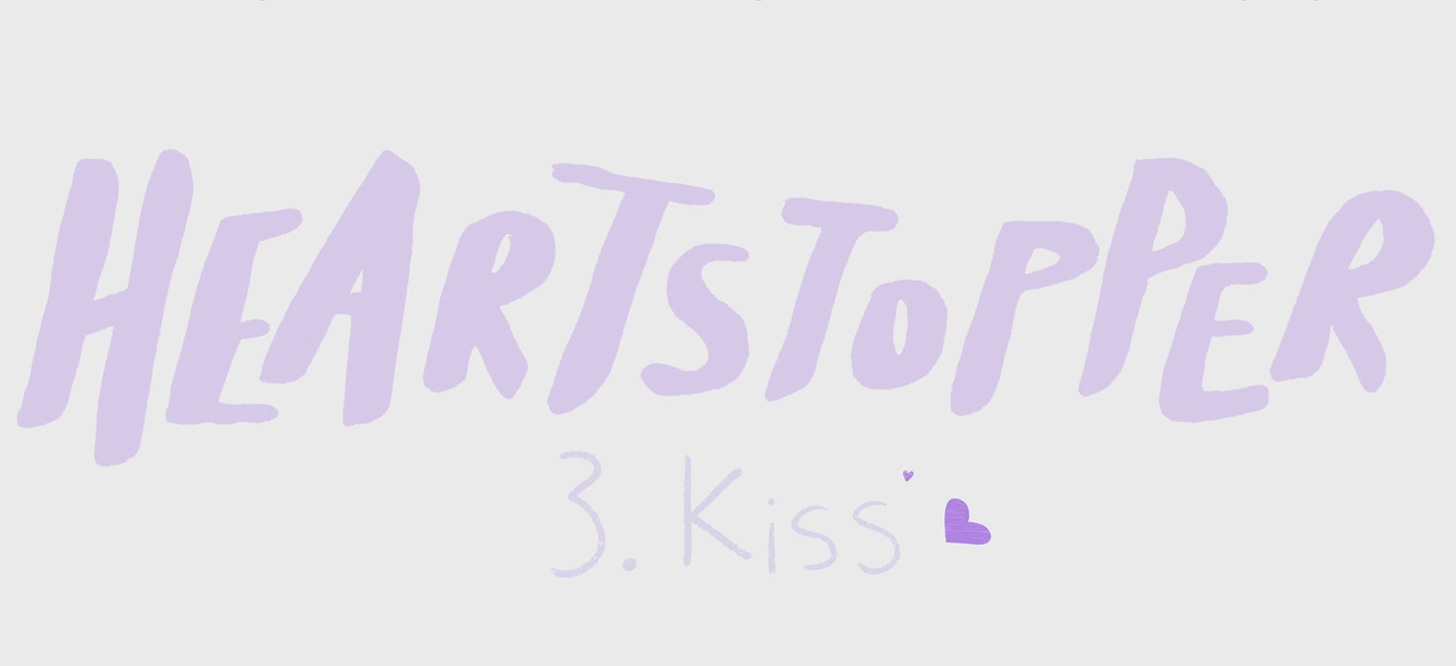
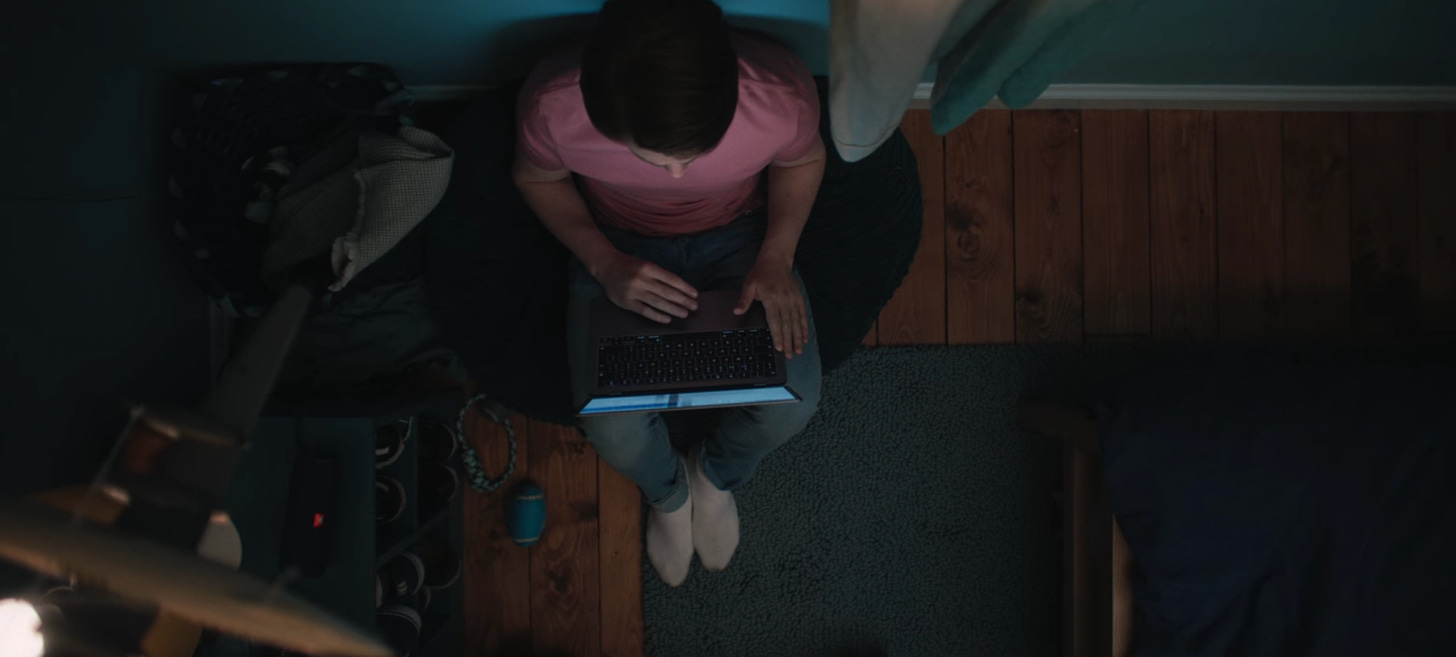
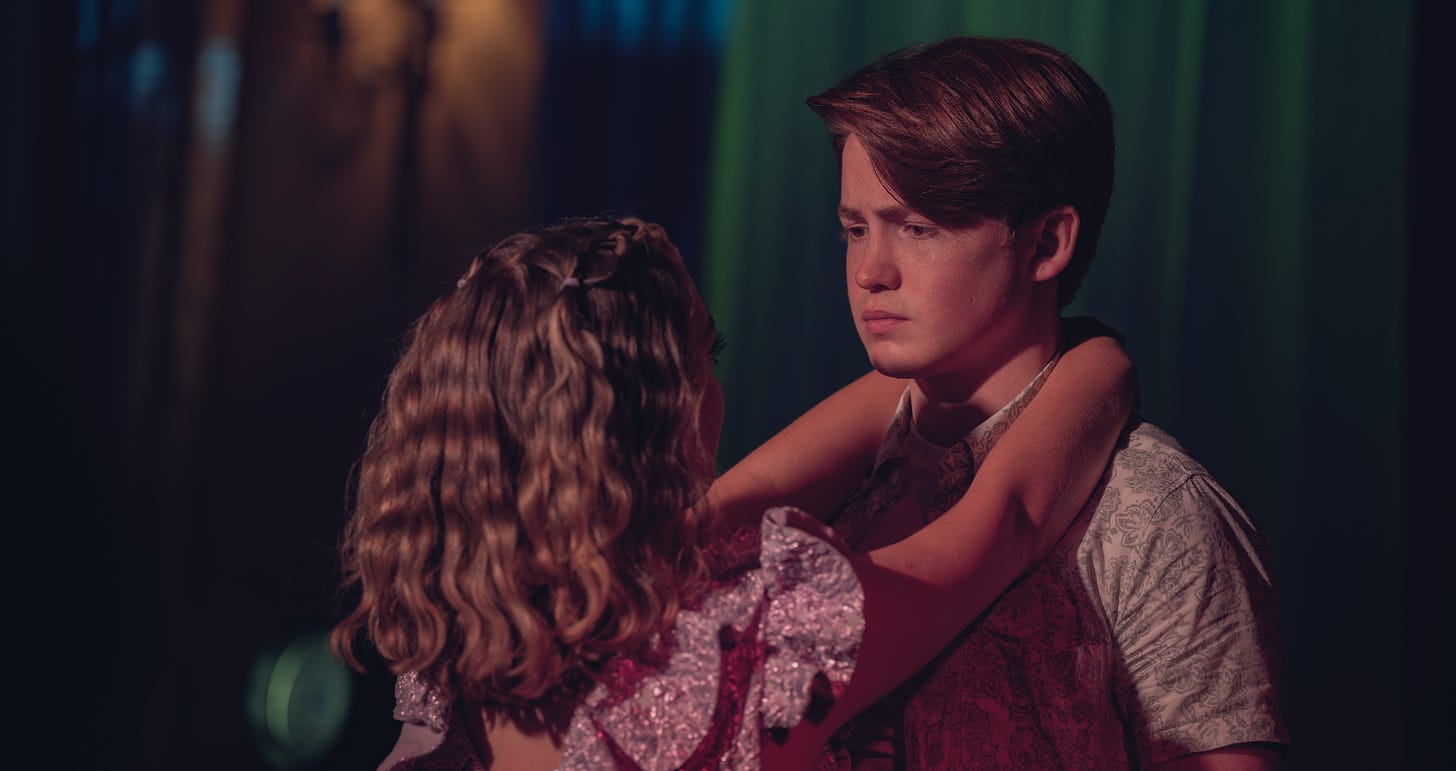
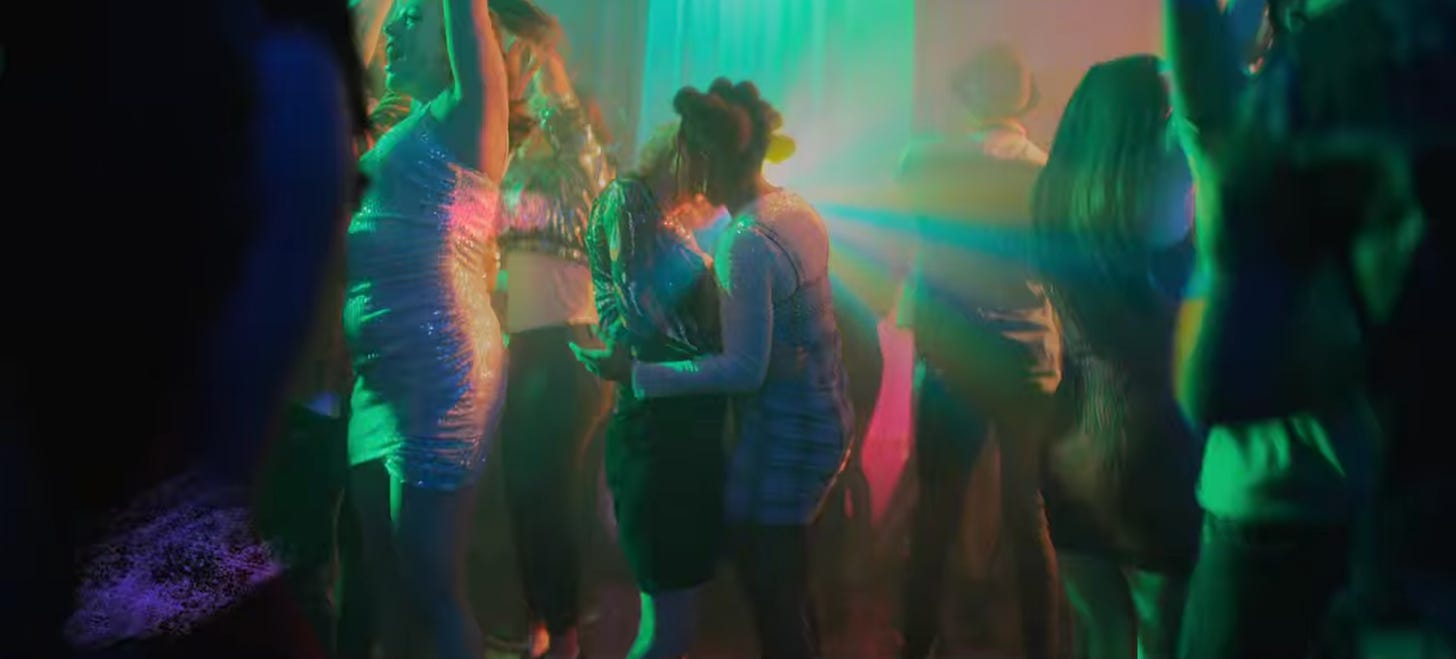
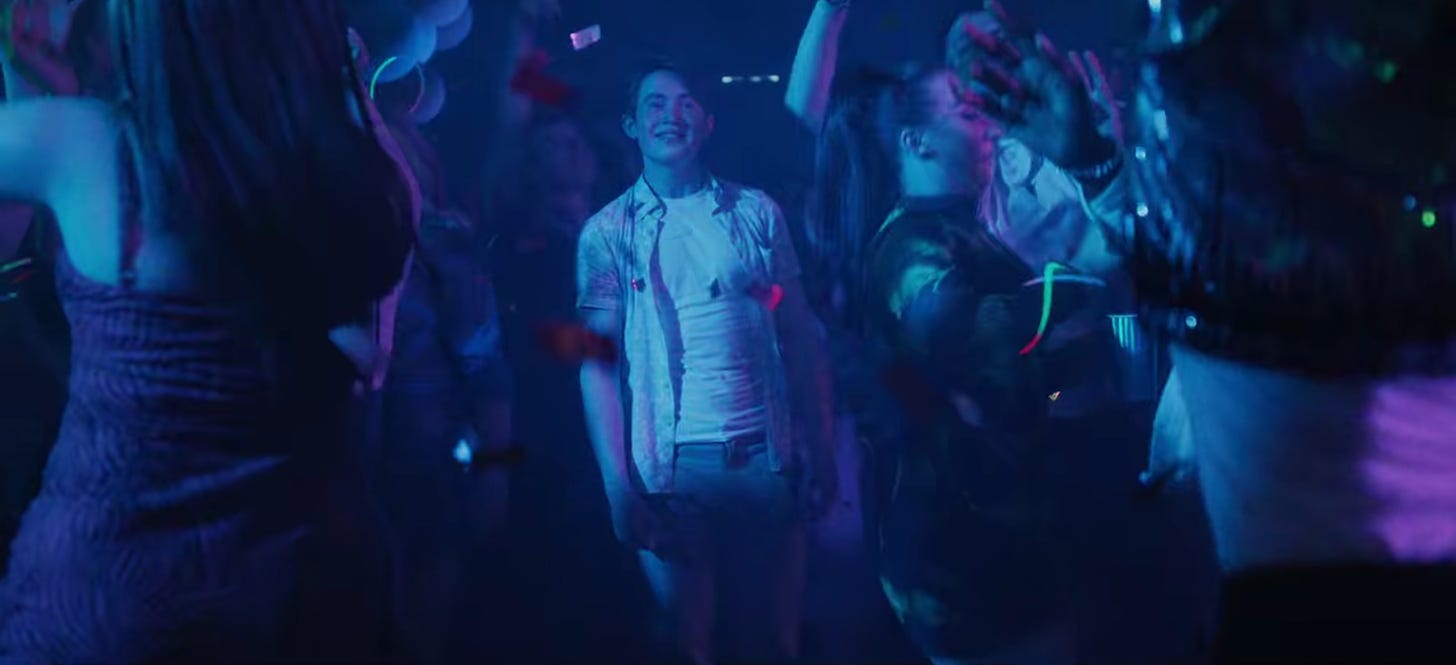
Just once I'd like to see a teenage party that it is just nine kids around a card table with chips and Mountain Dew listening to Spotify and playing Xbox.
Re: ages: It mostly boils down to I have a mental dividing line between adolescent and young adult that is around 15/16, and I feel like the actors and the characters here are on opposite sides of it. I think the romance would be more impactful if the actors actually looked as young as they are supposed to be.
Those are quibbles though. This has been fan-damn-tastic so far.